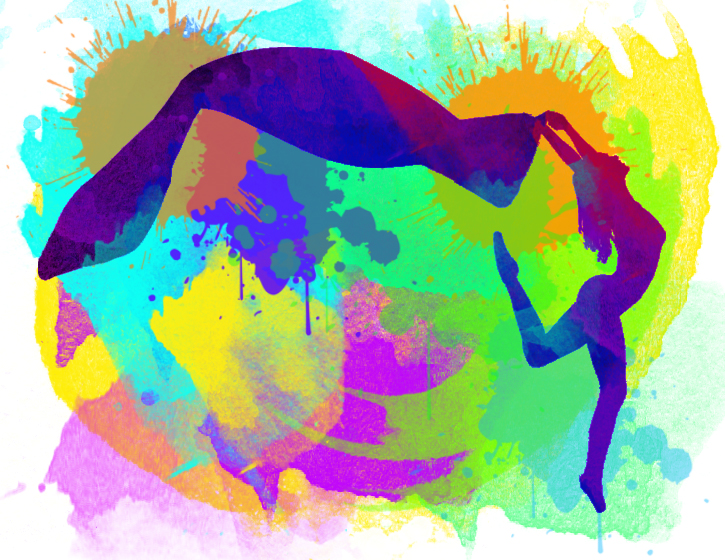
February 3, 2026
Supporting emotional expression, healing, and connection through movement and creativity.

Dance Movement Psychotherapy (DMP) is a type of therapy that uses movement and dance to help people explore feelings, reduce stress, and feel more connected to themselves and others. It’s based on the idea that how we move is linked to how we feel—and that sometimes, we can say more with our body than with words.
You do not need to be a dancer or have any experience. It is about using the body—posture, gesture, rhythm, and movement—as a language to process experiences, express feelings, and create positive change.
It can be helpful for children, teenagers, and adults. It is especially useful for people who find it hard to talk about how they feel.

DMP is grounded in research from neuroscience, developmental psychology, and somatic psychotherapy. Scientific studies show that trauma and emotional distress are often held in the body—not just the mind.
We all carry emotions in our body. When we feel anxious, we might tense up. When we are happy, we might feel light and bouncy. Movement helps us listen to these signals, understand them, and respond in a way that helps us feel better.
Research shows that creative, body-based therapies can reduce stress, help with trauma, and support emotional wellbeing. For many people, it is easier to start with movement than with talking. That is okay. You do not need to explain everything—your body already knows a lot.
Sometimes it is hard to talk about how we feel – movement provides a different way to express our feelings.
Helps you notice how your body’s movements, sensations and posture are linked to your thoughts and feelings.
Moving in gentle, creative ways can release stress, worry and other stuck feelings.
Movement can help you discover new ways to feel strong, balanced and comfortable in your body.

Dance Movement Psychotherapy is for anyone who wants to feel more connected to themselves, their emotions, or their body. Dance Movement Psychotherapy can be especially supportive for:
Individuals with anxiety or depression: movement can help release emotional tension, ease symptoms, and support emotional balance.
People with relationship difficulties: if you find it hard to trust or connect with others, this therapy helps explore relationships in a safe, body-based way.
Neurodivergent individuals: if you are autistic or have ADHD, this approach offers a creative, sensory-friendly way to express and process emotions.
Anyone feeling disconnected from their body: if you live with chronic pain or trauma, movement can help you feel safer and more at home in your body.
Each session is a collaborative process, allowing you to move at your own pace in a safe and supportive environment. Each session is a little different, depending on what you need, but here is what you might expect:
Sessions begin with gentle check-ins and grounding techniques to connect to the body.
You may explore movement freely or be guided through structured activities, such as mirroring, rhythm work, or expressive dance.
The therapist helps the client notice patterns, sensations, and feelings that arise through movement.
Talking may be included before, during, or after movement, depending on your needs and preferences.


At Inspire Wellbeing Services, our dance movement psychotherapists are trained to work sensitively with the whole person—mind, body, and spirit. We honour each client’s unique movement style and emotional journey.
Sessions are person-centred, non-judgmental, and inclusive. Whether you are new to therapy or looking for a more embodied way to explore your emotions, DMP can provide a path towards self-discovery and healing.
We also work closely with parents and carers when working with children or young people, ensuring that support extends beyond the therapy room.
Not at all! DMP is not about dance skills or choreography. It is about using natural movement to express and explore feelings—there is no right or wrong way to move.
It is completely normal to feel this way at first. Our therapists create a supportive space where you can move at your own comfort level. You are never pushed to do anything you are not ready for.
Yes. DMP is highly adaptable and can be tailored to suit a range of ages, abilities, and communication styles. It is particularly helpful for individuals who are non-verbal, neurodivergent, or have experienced trauma.
That is up to you. Some clients prefer a mostly movement-based session, while others benefit from combining movement with reflection. Your therapist will work with you to find what feels most helpful.
Sharing your past is not a requirement, but discussing your experiences can enhance the healing process. The amount of talking is led by you and your comfort level, with a focus on your current bodily sensations.
Unlike traditional talking therapies, DMP integrates the body into the healing process. This makes it especially powerful for processing emotions and experiences that are held in the body, such as trauma or anxiety.
Wear whatever feels comfortable and allows you to move freely. Most people find that soft, stretchy clothing—like jogging bottoms, leggings, and a t-shirt or jumper—works well. You do not need dance clothes, just something you can easily breathe and move in.
If you are wondering about skirts—they can be fine too, especially if they are loose and flowy. Some clients wear skirts over leggings or shorts for ease and coverage. The goal is to feel safe, supported, and at ease in your body, so choose what helps you feel most like you.
No pressure, no dress code—just comfort and freedom to move.

February 3, 2026
January 16, 2026

January 16, 2026
Get in contact with a member of our team for the right support